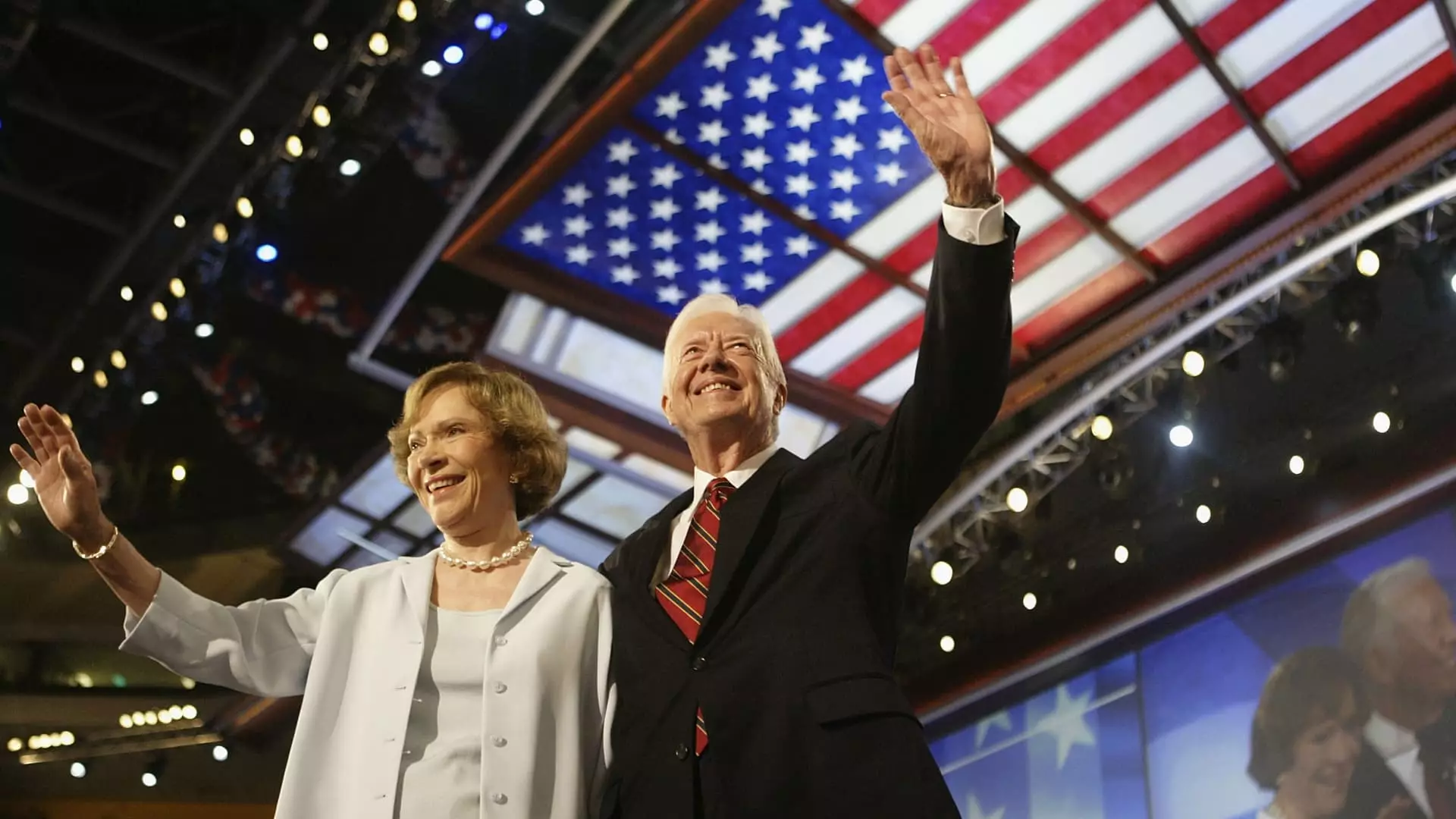The recent passing of former President Jimmy Carter has elicited an outpouring of tributes from leaders across the political spectrum, a testament to his profound influence as a leader and humanitarian. Carter’s death was officially confirmed by the Carter Center on a Sunday, marking the end of a remarkable life committed to public service and goodwill. As the 39th President of the United States, his actions, values, and principles profoundly affected both national and global landscapes. Across the aisles of American politics, figures from both major parties expressed their admiration for Carter, emphasizing the impact he made during and after his presidency.
Senate leaders were among the first to acknowledge Carter’s legacy. Senate Majority Leader Chuck Schumer highlighted the essence of Carter’s character, noting that true leadership resides not merely in eloquent speeches or personal ambition but in the tangible acts of service and kindness demonstrated by one’s actions. This view resonates strongly with many who see Carter as a role model who prioritized the welfare of others above his own. In contrast, outgoing Senate Minority Leader Mitch McConnell used a vivid metaphorical comparison, likening Carter to crops cultivated from the rich soil of America. This vivid depiction serves to underline how Carter’s character and experiences enriched the fabric of American society, reflecting the deep roots of his upbringing in Georgia.
Bill and Hillary Clinton also paid homage to Carter, reminiscing about their relationships and experiences with him during and after his presidency. Bill Clinton’s pride in awarding Carter the Presidential Medal of Freedom underscores a shared reverence for a leader whose humanitarian efforts continued to bloom long after he left office. Such sentiments reinforce the belief that the most significant impact of an individual often lies in their commitment to service, a characteristic that Carter embodied throughout his life.
Members of Congress from both parties took to social media to honor Carter’s legacy. House Majority Leader Steve Scalise and Democratic Leader Hakeem Jeffries reflected on his devotion to public service and charitable efforts, revealing a shared respect that transcended party lines. This cross-party reverence for Carter underscores the universal recognition of his humanity and the common ground he carved out through his service.
Carter’s strong faith played a pivotal role in shaping his actions and guiding his life choices. Former politicians and citizens alike noted that he lived out his Christian values through tireless community service. Even in his later years, Carter dedicated his time to teaching Sunday school, a reflection of his deeply held beliefs and the importance he placed on giving back to his local community. This commitment to his faith reinforces the perception of Carter as not just a leader but a true servant of the people.
Senator Mike Lee captured the essence of Carter’s post-presidential life by stating that it was during this time that he became distinguished for his humanitarian accomplishments. From his extensive work with the Carter Center to his involvement with Habitat for Humanity, Carter’s legacy demonstrates an unwavering resolve to address pressing social issues, including poverty and human rights. His life appears as a blueprint for civic engagement and moral responsibility that continues to inspire generations across the globe.
A Model for Future Leaders
In assessing Carter’s remarkable legacy, it becomes clear that he set a standard for leadership that values service over politics. The unanimous sentiments from both Republican and Democratic leaders following his death affirm that good governance is rooted in humanity and compassion. Leaders today can glean important lessons from Carter’s life — emphasizing the importance of sincerity, humility, and an unwavering commitment to the principles of democracy and equality.
As we remember Jimmy Carter, we reflect on a legacy that will endure, not merely due to his presidency but because of the kind of leader he was. His lifetime of service to humanity, marked by profound kindness and a willingness to lend a hand to those in need, serves as a guiding star for future leaders. In an age marked by division, his example highlights the need for unity, compassion, and a collective effort to make the world a better place.
While the political landscape may be contentious, Jimmy Carter’s life reminds us that true leadership reflects the spirit of humanity and a persistent commitment to serve others. His legacy will undoubtedly continue to influence not just political leaders but also individuals striving to create positive change in their communities and beyond.


Leave a Reply